‘Phenomenal’ Women Honorees Include Activists, Scholars, Artist, CEO, Philosopher
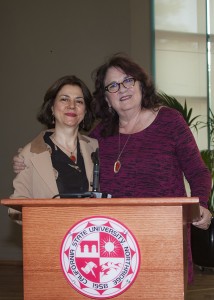
Nayereh Tohidi and Judy Baca.
The late Maya Angelou’s 1978 poem, “Phenomenal Woman,” lends its name to the biannual Phenomenal Woman Awards — a reception, award ceremony and fundraiser hosted by the Gender and Women’s Studies department at California State University, Northridge.
The 13th biennial Phenomenal Woman Awards, which took place Nov. 4 at the Grand Salon in the University Student Union, celebrated the 25th anniversary of CSUN’s Department of Gender and Women’s Studies and the 45th anniversary of the university’s Women’s Research and Resource Center.
The department bestowed the accolade to five women this year. The honorees were:
- CSUN alumna Judy Baca ’69 (Art), M.A. ’80 (Art Education), Hon.D. ’18, a painter, muralist and scholar. Baca is a world-renowned muralist perhaps best known for the The Great Wall of Los Angeles — which was painted along the Tujunga Wash, a tributary of the Los Angeles River. She was the founder of the first City of Los Angeles Mural Program in 1974. The program has since evolved into a community arts organization known as the Social and Public Art Resource Center (SPARC), which has been creating sites of public memory since 1976.
- Nayereh Tohidi, professor emerita, former chair of Gender and Women’s Studies, and founding director of CSUN’s Middle Eastern and Islamic Studies department. She also has served as a consultant to the United Nations (UNICEF and UNDP) and represented women non-governmental organizations at both the third and fourth World Conferences on women.
- Melina Abdullah, professor and chair of Pan-African Studies at California State University, Los Angeles. Abdullah was an original organizer of Black Lives Matter. She was also instrumental in replacing Columbus Day with Indigenous People’s Day.
- Sue Dunlap, president and CEO of Planned Parenthood Los Angeles, an organization that provides comprehensive reproductive and sexual health care services to 250,000 patients each year.
- Sandra Harding, distinguished research professor emerita of education and gender studies at UCLA. Harding is a feminist philosopher and directed the UCLA Center for the Study of Women.
- An honorary award also was given to professor and research psychologist Christine Blasey Ford, who testified about an alleged sexual assault during the confirmation hearing for Supreme Court Justice Brett M. Kavanaugh. Ford was honored for her courage and moral integrity, according to Tina Beyene, an assistant professor in CSUN’s Gender and Women’s Studies Department.
Department chair Breny Mendoza thanked the honorees for their efforts.
“Our awardees are phenomenal women of all walks of life,” Mendoza said. “They have made a difference in the world, and we are honored to have with us today a truly extraordinary lineup of phenomenal women.”
To recognize Baca as a Phenomenal Woman, Marta Lopez-Garza — professor of Gender and Women’s Studies and Chicana/o Studies — lauded the Matador’s artistic work, including The Great Wall of Los Angeles, which spans a half mile and depicts the multicultural history of California from prehistoric times to the 1950s.
Moreover, Lopez-Garza said, Baca’s art “reflects [her] strong belief that people of color should learn about and value our histories, and the histories of one another.”
Baca thanked the committee for the award and shared her vision of the future.
“I can easily say I was raised by phenomenal women,” Baca said. “A single mother in Watts who brought me into the world [by] taking a cab to give birth in St. Anne’s Home for Unwed Mothers, by herself at 23 years old; her indigenous mother, a refugee escaping a brutal revolution in Mexico….
“I dream of a time in the future when the ‘me too’ movement is transformed by Maya [Angelou]’s words: ‘I am a woman phenomenally. Phenomenal woman, that’s me.’ [Of a time] where women can respond [to that], ‘me too,’” she added.
The second Matador honored that night was Tohidi, who formerly served as chair for the department for four years. When presenting the award, professor and Associate Dean of the College of Humanities Sheena Malhotra said Tohidi “has one of the sharpest and [most] critical eyes for Islamic mobilization in Iran … and feminist responses to the same.”
Tohidi accepted the award with “pride and humility.”
“I’m humbled because I know very well [what it takes] to organize the Phenomenal Woman Awards and the deliberation it takes to choose awardees,” she said. “I’m really humbled to be among [my co-awardees] — they’re truly distinguished and phenomenal.”
Also in her acceptance speech, Tohidi thanked the CSUN community.
“I value CSUN so much,” Tohidi said. “CSUN gave me a home. As an exile [from Iran], and as an immigrant, [CSUN] has made me feel at home because of good colleagues, a friendly environment, good administration and a diverse, multicultural school.”
In addition to the presentation of awards, the event featured a silent auction, whose proceeds went to the department; a slideshow, highlighting past Phenomenal Woman awardees and the department; and two spoken-word pieces by poet and CSULA Pan-African Studies professor Funmilola Fagbamila.
Professor of gender and women’s studies and Director of the Women’s Research and Resource Center Shira Brown said that her goal for this year’s event was to highlight the ways in which the honorees contribute to feminism, gender studies and civil rights movements.
“[This event] reminds us why we’re doing the work, with whom we’re doing the work,” Brown said. “It’s an opportunity for us to not lose sight of the important work that’s being done and not lose sight of the fact that even though there’s a lot happening in politics, our work is still valuable and meaningful.”
After the awards and acceptance speeches, Mendoza led a question-and-answer session with the five awardees. Discussing police brutality, reproductive rights and other pressing social issues, the session lasted almost an hour. One question was directed to Baca.
Mendoza asked, “How does a muralist like Judy Baca depict what the current political landscape and struggles look like? What would be its themes, and who would participate in the making of it?”
Baca responded, “I am working in Fresno with Oaxaceños who are stone-fruit pickers, who are suffering from diabetes and amputations because of the lack of access to fresh food. [I’m also working in] Bakersfield with [farmers who encounter] pesticides as [a byproduct of] the EPA (Environmental Protection Agency) removing pesticide controls,” she said.
Additionally, Baca said, these images will become murals in the neighborhoods where she is doing this work, to “point out that the people who feed the nation — and, in fact, feed the world – are suffering these consequences for living in the Central Valley, more highly polluted now and more of a difficulty than ever.”

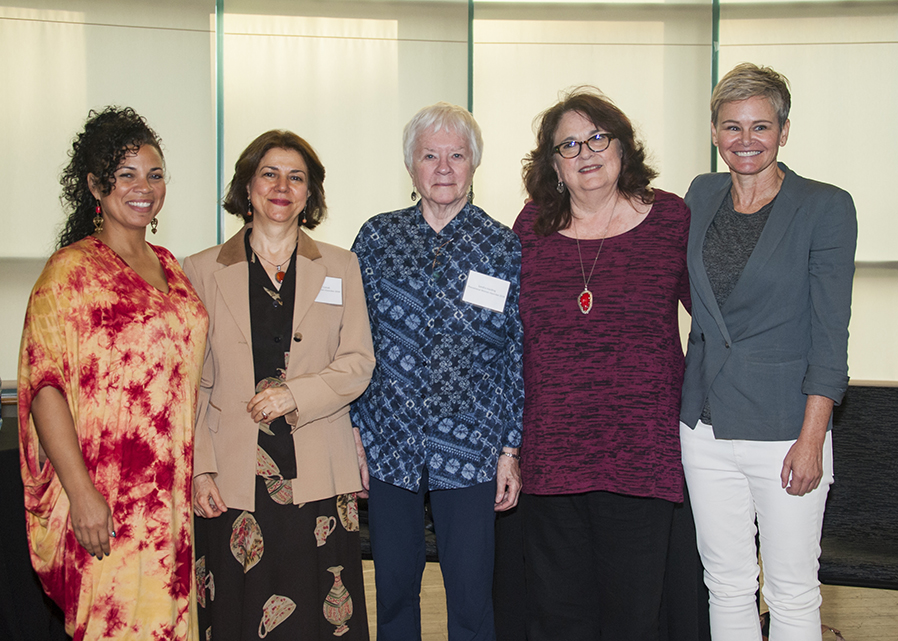
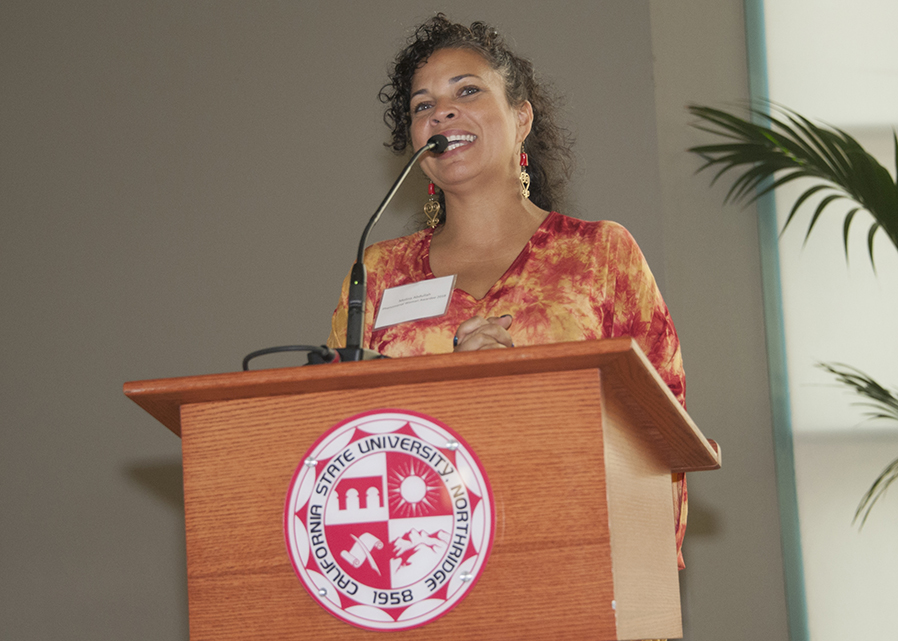
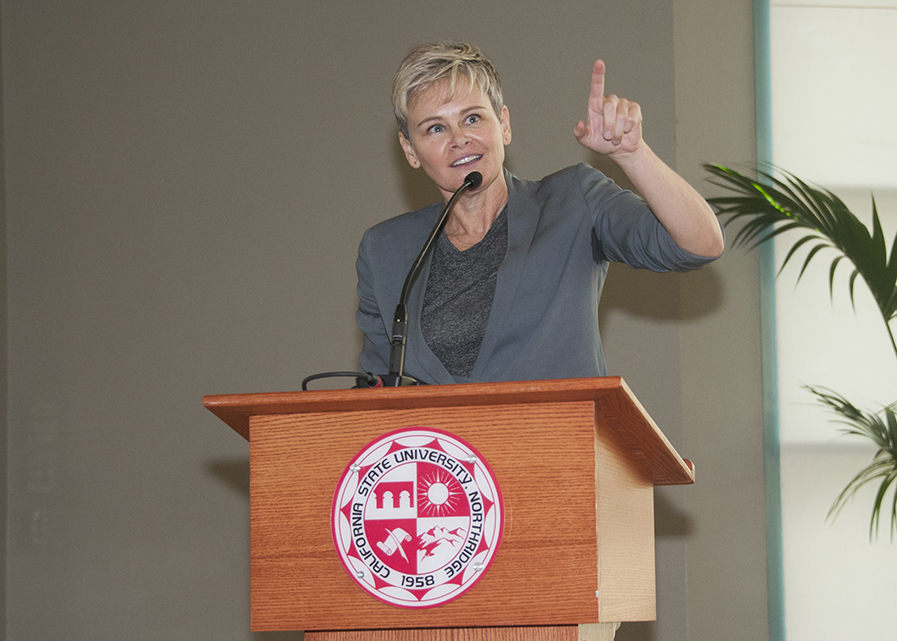
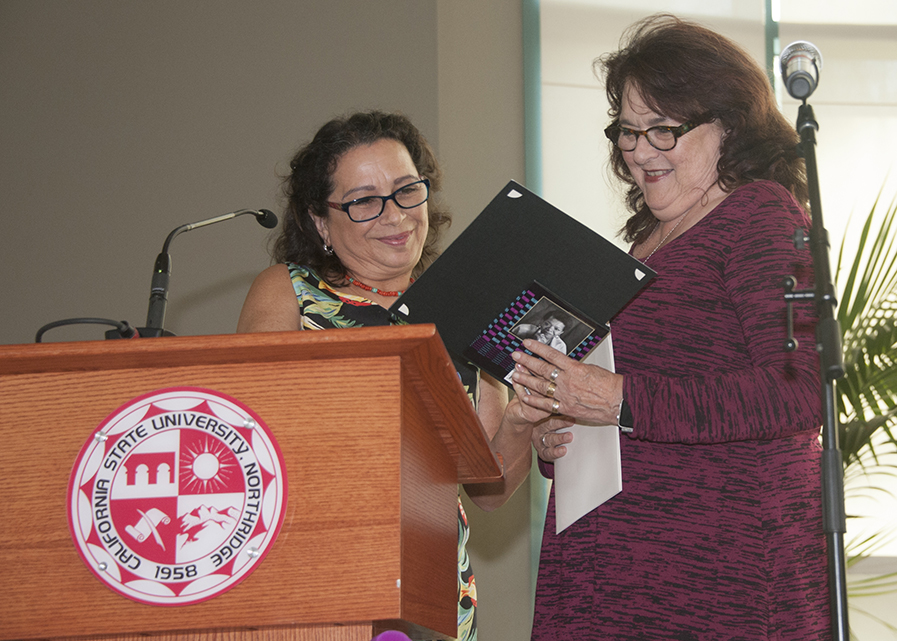
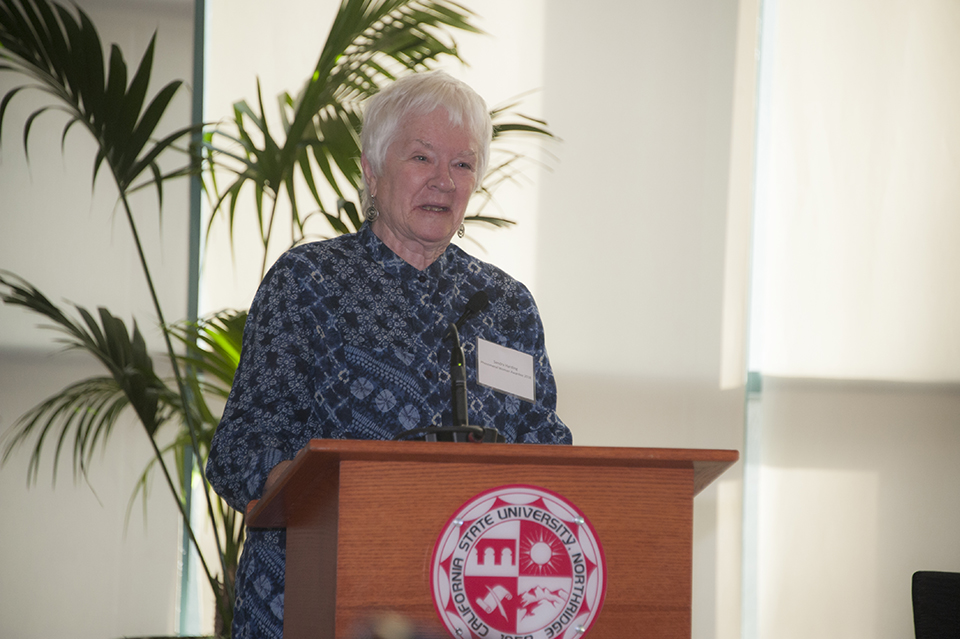
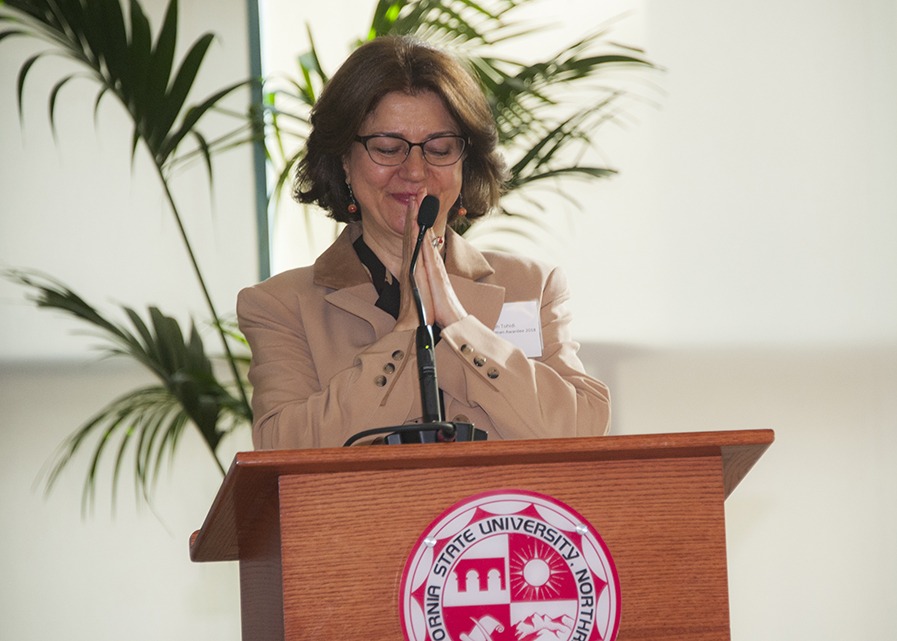

 experience
experience